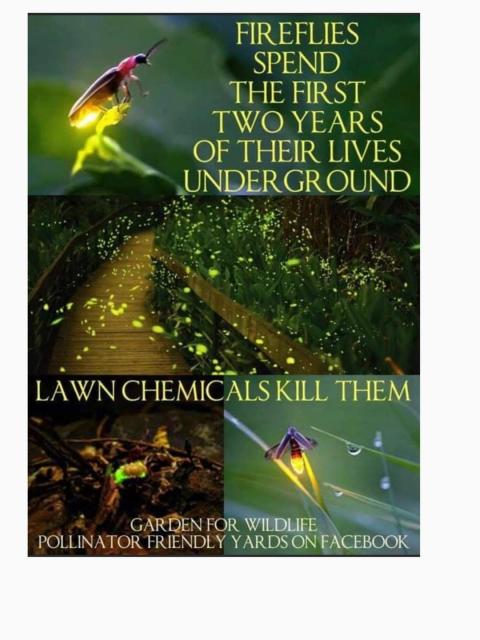How to Support Fireflies in Your Yard
So many of us are nostalgic about fireflies but don't see them anymore. A few changes in our landscape practices can support their return.
First, and most importantly, don't use chemicals targeting insects (pesticides and insecticides). Fireflies are insects, using the ground, soil and leaf litter during various stages of their life cycle. Firefly larvae, which live one to two years, eat critters like snails, slugs and caterpillars (free pest control!).
Second, mow higher and/or less frequently. Fireflies are attracted to high grasses and rest on tall blades of grass or shrubbery. Lawns mowed at 3.5 or 4 inches are better for fireflies yet also may produce a healthier lawn. Some experts recommend cutting no more than one-third of the grass blades at a time to avoid scalping and stunting its growth.
Third, plant native grasses and shrubs. Great native grass choices include Pennsylvania sedge (Carex pensylvanica), one of the earliest-blooming sedges in the spring; and Little Bluestem (Schizachyrium scoparium), often grown as an ornamental, in part due to the attractive bronze color of its leaves in autumn.
Lastly, reduce lights. Outdoor lights prevent fireflies from seeing each other’s flashes, which makes it difficult for them to communicate, defend their territory, and find mates. Read Insect-Friendlier Exterior Lighting by Natural Resources Steward Jennifer Montgomery.
I hope these tips help you and your neighbors have a beautiful display of fireflies for years to come.
Resources:
- Eleven Cool Things You Never Knew about Fireflies (Scientific American)
- Facts about Fireflies (Firefly Conservation and Research)

Photo Credit: Leslie Nelson Inman of Pollinator Friendly Yards on Facebook.
Do you love learning about stuff like this?
SUBSCRIBE TO Granite State Gardening newsletter
Got questions? The UNH Extension Yard and Garden Infoline offers practical help finding answers for your yard and garden questions.
Call toll free at 1-877-398-4769, Monday to Friday, 9 a.m. to 2 p.m., or fill out webform.

